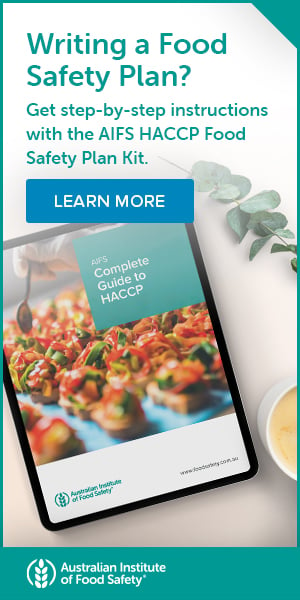

Food Safety Inspections are one of many procedures put in place by the government to ensure that food is clean and safe for consumers. As a lot of food preparation occurs behind closed doors, customers are often unaware of how their products are made and if they are fit for consumption.
Inspections are used to ensure that food products are not contaminated in any way. Food products such as raw meat can be dangerous if not prepared properly. Additionally, without the correct cleaning and sanitising procedures in place, harmful pathogens can spread quickly.
Regular Food Safety Inspections are an effective way for the council to protect consumers from poor food handling practices and the potential spread of food-borne illness.
Food Safety Inspectors, often called Environmental Health Officers (EHO's), check that good food safety practices are in place particularly around time and temperature control, cleaning and sanitising, and personal hygiene of food handlers. They will check to ensure that all kitchens are following proper food safety practices when storing, handling and preparing food and they will check that the whole restaurant is following acceptable cleaning and hygiene protocol.
When inspecting a food premises, EHO’s will often check that:
For a full list of what may be checked during an inspection, food businesses are advised to contact their local council.
In QLD, NSW, ACT and VIC, one of the most important factors that an EHO will address is the presence of a Food Safety Supervisor. In these states, food businesses are required by law to have a qualified Food Safety Supervisor on staff at all times and must hold the relevant documentation on the premises. Plus, all food handlers should have the skills and knowledge to handle food safely. Food businesses should:
If a food business does not follow health standards properly, they will be cited. The restaurant may also receive a fine, which can number in the tens of thousands. These fines are designed to discourage future food safety violations.
Before the inspection, food businesses often fail to:
1. Clean and sanitise the food premises and equipment properly. This includes cleaning and sanitising under, behind and inside equipment and appliances, as well as cleaning grease traps, floors and storage areas
2. Have hand washing facilities that are readily accessible, dedicated to hand washing with a supply of warm, running potable water, liquid soap and single-use paper towels
3. Control pest issues such as cockroaches and mice so there is no evidence of infestation; cover waste containers, and protect areas from pests with fly screens etc
4. Have a food temperature measuring device to keep high-risk food at the correct temperatures during both display and storage
5. Cover food during storage and protect it from contamination